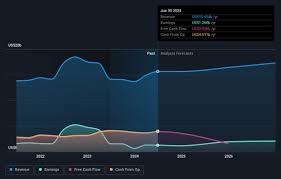Do you age faster when you're pregnant?

The body undergoes many changes when a woman becomes pregnant. Now, scientists are studying the long-term effects pregnancy has on the human body.
Recently, scientists have found that a mother’s cells age biologically by months to years compared to women who were not pregnant, according to a new study published in the journal Proceedings of the National Academy of Sciences.
How scientists figured out that women age during pregnancy
The Washington Post explains that scientists behind the study analyzed specific DNA markers related to epigenetics in the blood of pregnant women, using artificial intelligence algorithms that could “examine the patterns of specialized chemical markers found on the outside of some genes.” By studying the epigenetic markers, AI is able to calculate how old a cell is, which is known as biological age.
According to Scientific American, biological age (when the body reflects physiological stress it has gone through) is different from chronological age (how many times we’ve gone around the sun). Biological age is often used to predict certain health problems like dementia.
Our body has the ability to change its age when it goes through certain life events, such as trauma, illness or stress, according to National Geographic, because the body is redirecting energy and resources to cope with the events.
So how much do women age during pregnancy?
The study found that women who were pregnant at least once in their lives had an older biological age than their peers who had never been pregnant, per Time.
Depending on the woman, pregnancies can cause around four months to a year of faster aging. Women who were pregnant more than once aged five months faster than women who had fewer pregnancies.
Per The Washington Post, expecting mothers at full term could have cells that appear two years older than before.
Calen Ryan, an associate research scientist at Columbia Aging Center, told The Guardian, “Our findings suggest that pregnancy speeds up biological ageing, and that these effects are apparent in young, high-fertility women.”
But that aging is supposedly reversed after childbirth
Some studies suggest that this biological aging can be reversed. One study published in the journal Cell Metabolism found that the biological age is reversed as soon as three months after childbirth, with the DNA markers showing evidence of reverting to a more youthful state, per The Washington Post. Some women who breastfed their babies had cells that were younger than before pregnancy by as much as eight years.
But there is some hesitancy with this conclusion. Kieran J. O’Donnell, an assistant professor at the Yale Child Study Center and Yale School of Medicine, commented on this study and said that their team didn’t measure the biological age of participants before their pregnancies, so a “rejuvenation effect” can’t be officially confirmed, according to Scientific American. More research would be needed.


 Australia
Australia Argentina
Argentina  Austria
Austria  Brazil
Brazil  Canada
Canada  Germany
Germany  Ireland
Ireland  Italy
Italy  Malaysia
Malaysia  Mexico
Mexico  New Zealand
New Zealand  Poland
Poland  South Africa
South Africa  United Kingdom
United Kingdom  United States
United States 
























